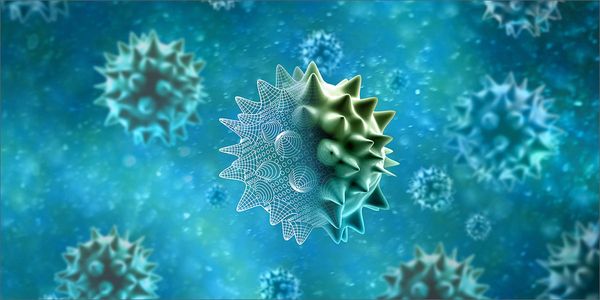Infection
Infection is a disease caused by a pathogenic microorganism (e.g., bacteria, viruses) able to invade tissue.
-
JUN 18, 2019 | 8:00 AMDATE: June 18, 2019TIME: 08:00am PDTAnalytical Ultracentrifugation (AUC) is one of the most powerful biophysical tools used today for the characterization of biological samples ranging...MAY 21, 2019 | 7:00 AMDATE: May 21, 2019TIMEL 7:00am PT, 10:00am ET Human T cells are central effectors of immunity and cancer immunotherapy. CRISPR-based functional studies in T cells could prioriti...MAY 15, 2019 | 12:00 PMDATE: May 15, 2019TIME: 9:00am PDTHepatitis B infections remain a significant global healthcare burden resulting in 887,000 deaths in 2015. Clinical laboratories can have a measurable i...Screening to identify all known viruses and other pathogenic microorganisms including bacteria, fungus and parasites in human tumor tissues will provide a more comprehensive understanding of...Speaker: Erle Robertson, PhD
In this webinar, we will discuss our most recent additions to our CRISPR protein portfolio, the GFP-SpCas9 and GFP-eCas9 fusion proteins. The two GFP-Cas9 fusion proteins offer great visualiz...
Speaker:
Michelle Ding, M.S.
, Yanfang Jiang, PhD
APR 30, 2019 | 8:00 AM
DATE: April 30, 2019TIME: 8:00am PDTIumour-derived extracellular vesicles (EVs) are of increasing interest as a resource of diagnostic biomarkers. However, most EV assays require large...
“Emerging infections” are those that appear suddenly or are rapidly increasing in incidence or geographic range (e.g., HIV/AIDS, Ebola, SARS, Middle East Respiratory Syndrome [MER...
Speaker:
Stephen S. Morse, PhD, FAAM, F.A.C.E.
Presented at: Infectious Disease Virtual Event Series 2019
Despite over 60+ years of research, the etiology of bacterial vaginosis (BV), the most common vaginal infection, remains controversial. Epidemiological data strongly suggest that BV is acquir...
Speaker:
Christina Muzny, MD, MSPH, FACP
Presented at: Infectious Disease Virtual Event Series 2019
APR 24, 2019 | 9:30 AM
DATE: April 24, 2019TIME: 9:30am PDTTicks are currently considered to be second only to mosquitoes as vectors of human infectious diseases in the world. Each tick species has preferred...
The laboratory diagnosis of infectious diseases has traditionally relied on recovery of pathogens in cultures and for many infections, this approach remains the standard of care. The developm...
APR 03, 2019 | 11:00 AM
DATE: April 3, 2019TIME: 08:00am PDTThis webinar is designed to educate on the pharmicokinetics of procalcitonin which is a marker of sepsis and bacterial infection. We will discuss...
This presentation will present findings from studies based on Danish nationwide registers investigating the link between all treated infections and the risk of mental disorders. The studies w...
The immune system is linked to an increasing number of medical diseases, including lately also severe mental disorders. Hence, infections, autoimmunity and other immune responses could be inv...
Stimulation of human visual cortex is known to elicit visual perceptions that could potentially be used for restoring artificial vision to individuals who have lost their vision due to non-co...
























